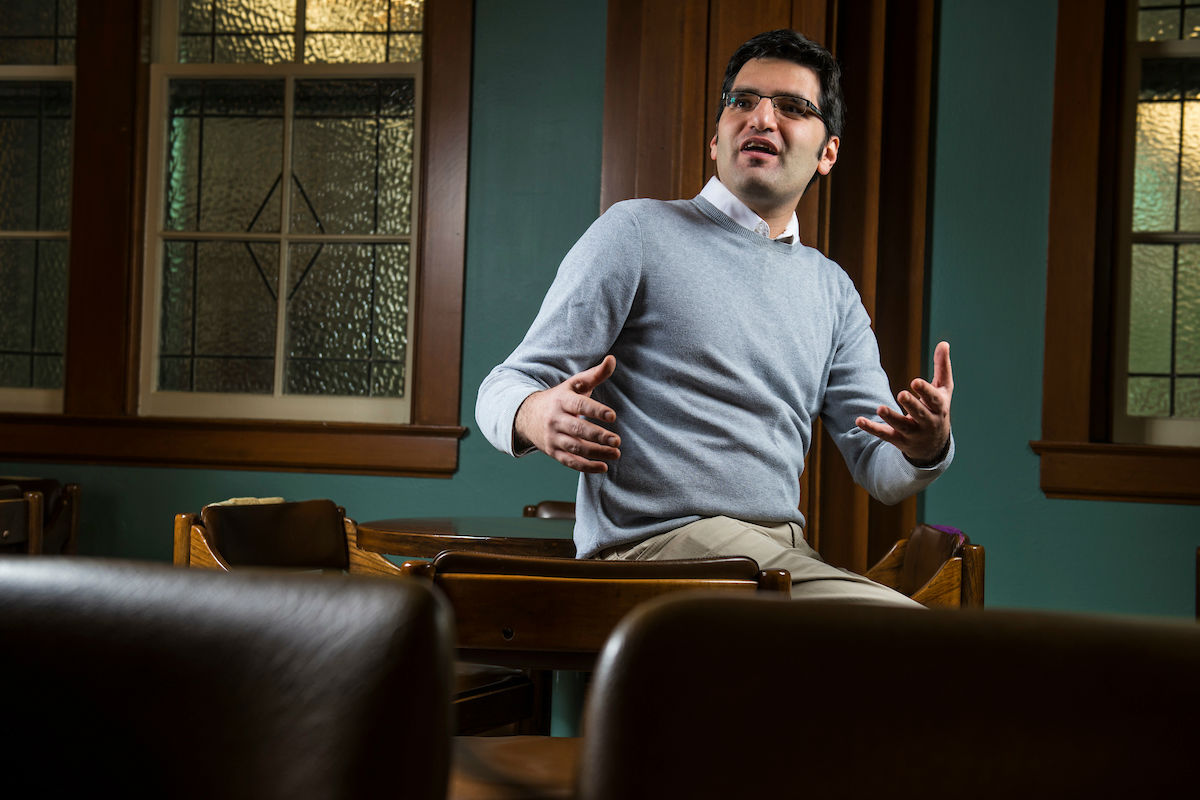
Ardakanian, an expert in ubiquitous computing who joined the University of Alberta's Department of Computing Science in July 2017.
New assistant professor of computing science Omid Ardakanian is making the world a greener, more sustainable place, one thermostat at a time.
"I'm interested in cyber-physical systems in both residential and commercial buildings as well as in power grids and transportation systems," explained Ardakanian, an expert in ubiquitous computing who joined the University of Alberta's Department of Computing Science in July 2017. "The end goal is to make these systems more energy efficient and to combat climate change."
Sustainable computing
Known as sustainable computing, the plan is to enable a more sustainable future using data analytics and computation combined with new sensor networks or existing sensory infrastructure-like thermostats and motion detectors.
"About 40 per cent of energy in Canada and the United States is consumed in buildings, specifically by HVAC systems, lighting, and plug loads," explained Ardakanian. "If we make these systems even 10 per cent more efficient, we can save billions of dollars annually-not to mention a lot of energy."
Other applications range from using smartphone sensors and gamification to teach individuals just how much energy they use on a daily basis-giving them incentives for consuming more efficiently.
"Driving your car for one second consumes the same amount of energy as leaving an appliance like your phone charger plugged in for an entire day," said Ardakanian. "It is important for people to have this information so that they can make informed, strategic choices about their energy consumption."
Innovative ideas
Currently, Ardakanian is teaching a graduate course on sustainable computing that asks students to develop their own projects using public data sets from the City of Edmonton and the University of Alberta.
"The idea is to have them build an application that can make our city or our campus more sustainable," explained Ardakanian. "Climate change is a global problem and we need to build global-thinking solutions."